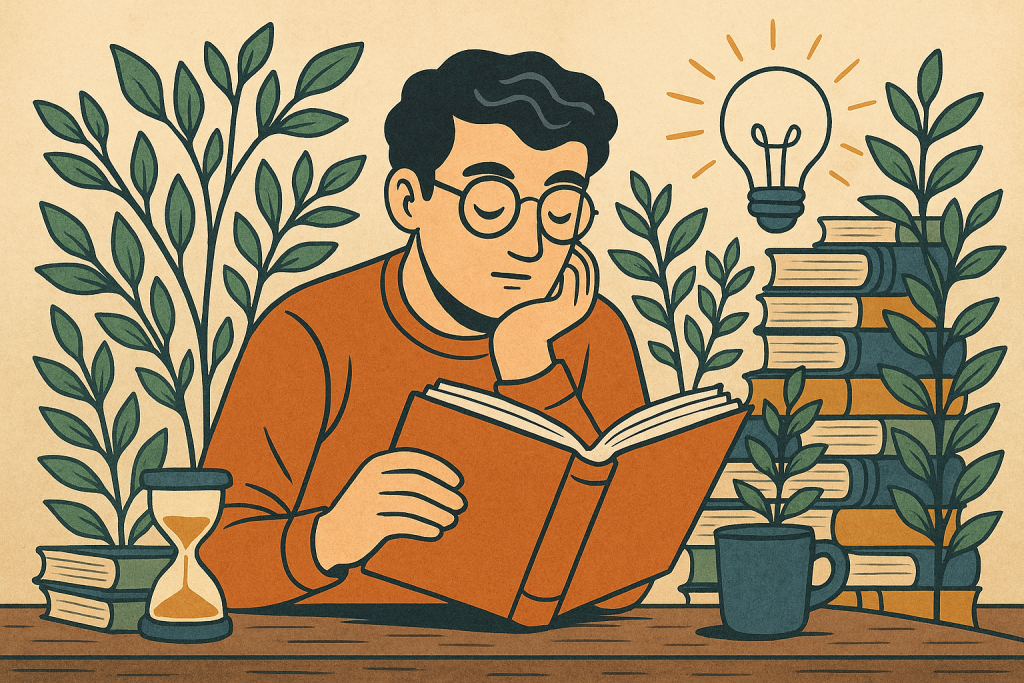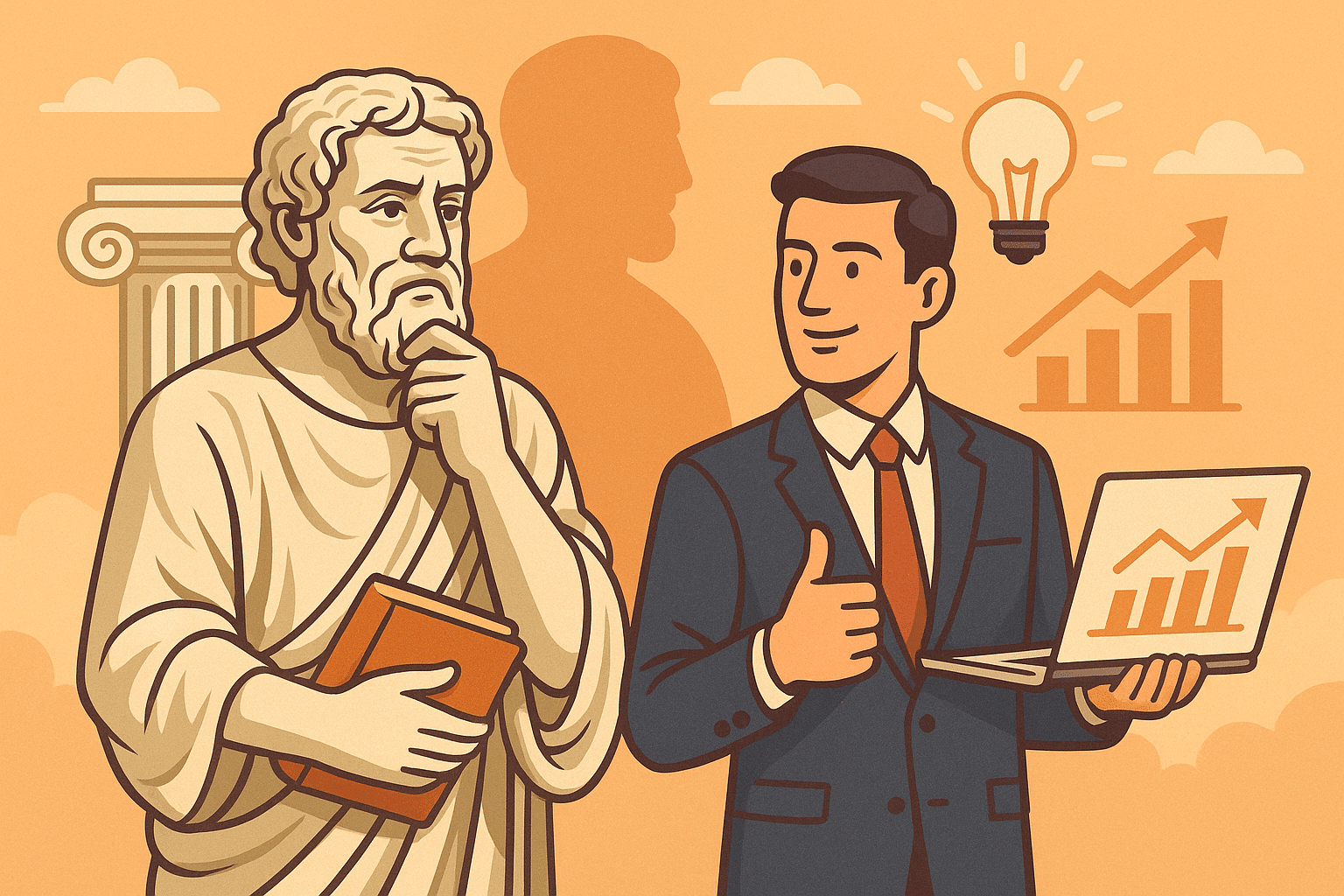In today’s world of viral trends and instant access, speed has become a virtue. But when it comes to learning and retaining knowledge, research suggests that slow consumption may be the smarter route. Whether it’s reading a dense book or absorbing a complex topic through repeated exposure, slowing down might be the key to understanding deeply and remembering longer.

The Rise of the “Slow Content” Movement
A growing number of educators, cognitive scientists, and even tech leaders are questioning the endless stream of bite-sized content. Platforms like TikTok and Twitter have conditioned users to crave brevity, but the long-term effects on comprehension and memory are becoming a concern.
Recent discussions in education and digital literacy circles have highlighted a push toward slow content consumption—the deliberate and paced intake of knowledge. The idea is not just to absorb information, but to process, reflect, and apply it in meaningful ways. This movement shares roots with other “slow” ideologies, like slow food and slow travel, which value depth over speed.
How the Brain Benefits from Slow Consumption
Multiple studies in cognitive psychology confirm that slower processing allows for stronger encoding of information in long-term memory. According to research published in Trends in Cognitive Sciences (2013), active engagement and spaced repetition are both significantly more effective than passive or rushed intake.
In other words, cramming a YouTube tutorial might help you pass a quiz, but revisiting the material over time helps you own the knowledge. This makes slow consumption an ideal method for those looking to build expertise rather than skim surface-level facts.
“Learning that lasts takes time,” says Dr. Maryanne Wolf, cognitive neuroscientist and author of Reader, Come Home: The Reading Brain in a Digital World. “The brain’s deep reading circuits thrive when given space to analyze, infer, and connect.”
Slow Reading: A Resurgence Among Knowledge Workers
One popular application of slow consumption is slow reading—a practice of reading thoughtfully and at a reduced pace. Once dismissed as inefficient, slow reading is now being adopted by professionals aiming to enhance comprehension and critical thinking.
Apps like Libby and platforms such as Longform.org have capitalized on this trend, offering curated, long-form content that encourages immersive engagement. Notably, Kindle’s time-tracking features and Goodreads’ annual reading goals have nudged users to be more mindful in how they consume text.
Many knowledge workers now see slow reading not as indulgence but as a professional asset. “The depth and nuance I get from slow reading far outweigh the benefits of scanning multiple articles,” notes tech consultant Laura Pak in a recent Fast Company interview.
The Downside of Speed: Cognitive Overload and False Mastery
The problem with fast content isn’t just poor retention—it’s the illusion of knowledge. Skimming five articles can give a false sense of mastery, even when none of the core ideas are truly understood.
Cognitive load theory, pioneered by psychologist John Sweller, explains that our brains can only process a limited amount of information at a time. When content is consumed too quickly, it overwhelms working memory and disrupts learning pathways.
This effect is amplified by multitasking. Listening to a podcast while browsing headlines might feel efficient, but it often results in fragmented recall and superficial understanding.
How to Practice Slow Consumption in a Fast-Paced World
Adopting a slower approach to content doesn’t mean disconnecting entirely. It means intentional consumption—choosing what, how, and when you engage with information.
Here are some practical strategies:
- Use content filters: Subscribe to newsletters or curated feeds rather than relying on algorithmic timelines.
- Schedule deep learning sessions: Block time for reading, listening, or watching long-form content without interruptions.
- Embrace re-consumption: Revisit valuable materials regularly to reinforce learning.
- Reflect actively: Take notes, discuss with peers, or apply what you’ve learned to real-world scenarios.
- Limit multitasking: Avoid mixing learning with other tasks to allow focused engagement.
Why It Matters for the Future of Knowledge
In an age where misinformation and shallow takes dominate headlines, slow consumption isn’t just a personal preference—it’s a civic need. Societies depend on well-informed individuals capable of nuanced thinking and long-term memory formation.
With emerging technologies like AI-generated content, there’s even more need to differentiate between surface-level content and deep, meaningful information. Slowing down allows individuals to make those distinctions and engage more critically with what they consume.
References:
- Sweller, J. (1988). Cognitive Load During Problem Solving: Effects on Learning. Cognitive Science, 12(2), 257-285.
URL: https://doi.org/10.1207/s15516709cog1202_4 - Bjork, R. A., Dunlosky, J., & Kornell, N. (2013). Self-regulated learning: Beliefs, techniques, and illusions. Annual Review of Psychology, 64, 417–444.
URL: https://doi.org/10.1146/annurev-psych-113011-143823 - Libby app for slow reading and curated content.
URL: https://www.overdrive.com/apps/libby - Longform.org: Curated long-form content.
URL: https://longform.org/






